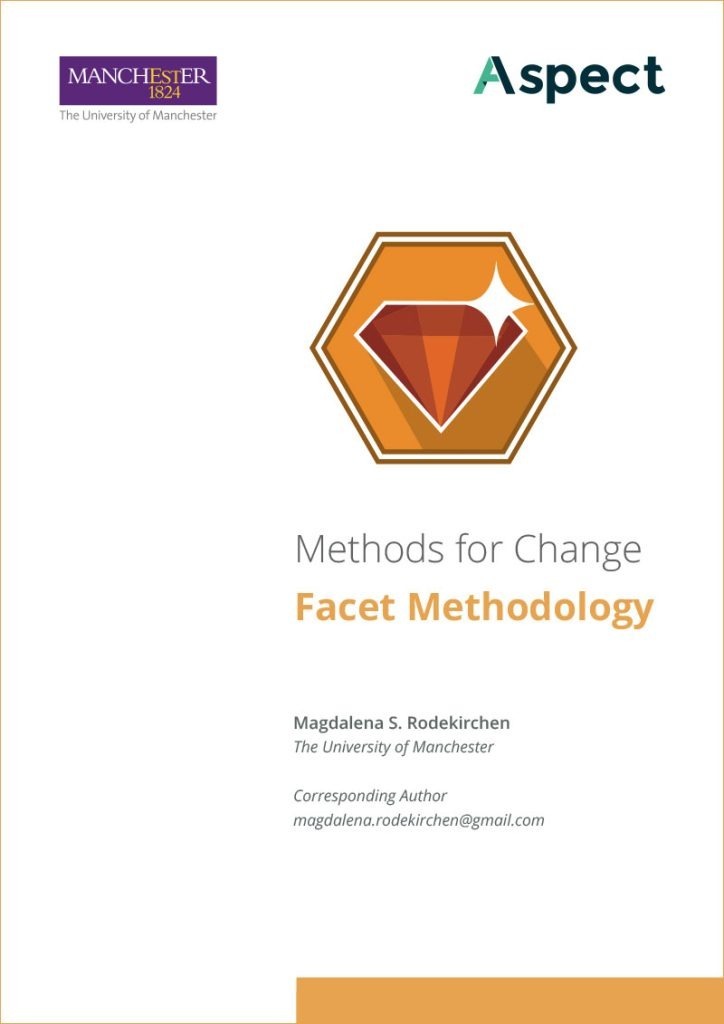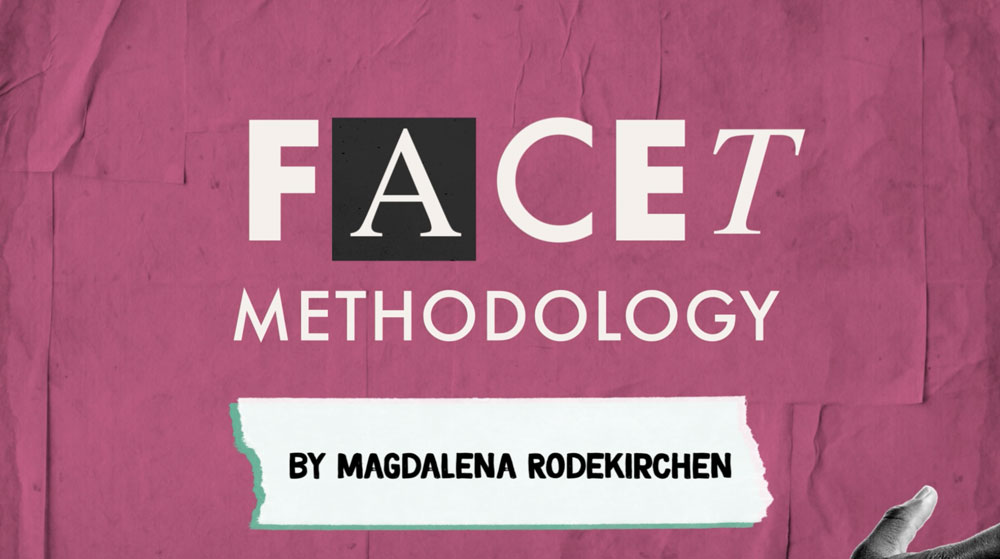Facet Methodology is a research approach that centres the creativity, playfulness, and inventiveness of the researcher(s) by imagining the research process as a gemstone and facilitating an exploratory approach to mixing methods and theories. It aims to uncover connections which would not have become visible by using one perspective and one method alone and thereby trouble existing assumptions about a problem or phenomenon.
Facet Methodology allows the researcher to use an interdisciplinary mix of methods in an iterative process, in which both the content of the enquiry and the methods used are adapted over the course of the research. In other words, the researcher adjusts the lines of enquiry and their respective methods according to what they learned from the previous explorations. A big advantage here is the flexibility to revise and refine the research as it progresses, and new insights emerge as well as for participants to play an active role in co-designing the research. Due to its inter-disciplinary orientation, Facet Methodology can be adapted to a wide range of themes and sectors. It does so by exploring how various elements, such as social, economic, environmental, spatial, temporal, biophysical, material, spiritual or others, are both lived and experienced by people and animals, and how all these elements are also multi-dimensional and connected.





